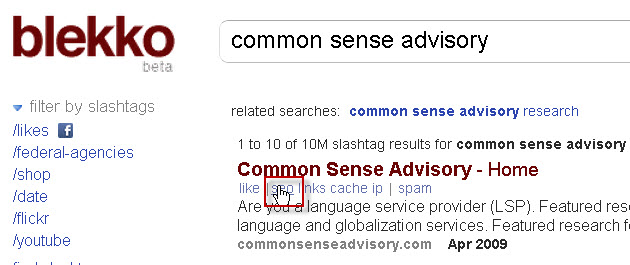Highlights from Search Marketing Expo (SMX) 2011
Earlier this month our own Peter Betts attended Search Marketing Expo 2011 and International Search Summit 2011 in Seattle. In this blog, Peter shares key “take away” messages from SMX, the Search Marketing Expo. Part 2 of this blog focuses on messages from International Search Summit.
Search Engine Optimization (SEO) and Search Engine Marketing (SEM) both present ever evolving landscapes. Conference presentations this year are already showing validation for some predictions made at last year’s conferences, like PubCon in Las Vegas. Read on for what we feel are major trends to watch for in SEO and SEM this year.
Correlation vs. Causation
There was considerable discussion about the distinction between correlation and causation. It may be possible to correlate a key feature on your website with increased rankings or site visits. But that feature may not be the actual cause of your search results. This topic is covered extensively in the slides used by SEOMOZ.
Periodic Table of SEO
This lively panel discussed emerging new “elements” for Search Engine Land’s Periodic Table of SEO. Elements that have a positive effect in SEO using Google, Bing and Yahoo were derived from several recent surveys:
- URL, Page size/length, flash were elements that did not impact search results substantially, while session id’s had a strong negative correlation.
- Page load time will only hurt you if your time was definitely slow; otherwise any short time has a slightly positive or neutral impact.
Keywords and Content
- It is important to place keywords in title tags, especially for Yahoo and Bing.
- Better search results are obtained from keywords in h1 tags and h2 tags, but not in h3 tags.
- Content is still important. Relevant content, linked to “authority” hubs will have a strong positive impact.
Links
- Internal link count only helps a little.
- Hub links are strong.
- Links to sites that your competitor’s link to help a lot. Creates sense of a consensus.
- External links have much more positive impact on search than internal links.
- Direct links to Google sites will hurt your rankings.
- SEOMOZ feels diversity of a link’s anchor text is important and influences SERPs.
Here is recommended a link tool site: https://ontolo.com/
General advice
- Do not look for “secret” SEO factors.
- Find differentiating factors and add that to your website content and SEO strategy
- Do what your competitors are doing; if it works, do it.
- Take chances, and don’t limit yourself to what your competition is doing.
- Exact match domains – effectiveness dropped. Used to be a strong aspect only a year ago.
- A useful SEO tool was recommended: https://mergewords.com/
- Stefan Weitz, Director of Search for Bing, said that if the user has to use the backspace button to modify search results, they may feel that the search did not work and they may move you lower next time in search. (Modifying results from “suggested searches.”)
- Blekko search engine has a feature to allow you to view your info and your competitors info for ranks and incoming links. www.blekko.com. Click on the SEO link under the company name and view several charts that display incoming links and other useful information.
- Consider blogging for another company and let them write a guest blog for you. You each get highly useful cross links.

Social networking’s influence
- The number of times your URL is reTweeted and the Social Authority of the re-Tweeters has a substantial impact on search rankings. The more followers that re-Tweeters have the better the search ranking results.
- Facebook appears to help also. A speaker from Google maintains that Facebook is not part of Google’s algorithm. There was considerable disagreement about this.
- One speaker maintained that links are still the key, as is on-site optimization. This still has more impact than LinkedIn, Facebook and Twitter.
- LinkedIn is an authority hub and much better than Twitter.
- Consider Google’s “+1” which is similar to “Like” on Facebook. It is not a key factor yet, but may become so in the future. You may want to begin cultivating results using this tool to be ready.
Main take-away message from the conference
- The consensus seems to be do what is right.
- Solid content, seek some links with authority, stick to strong keywords.
- Do not use content mills or link mills.
- Stay away from gimmicks.
- Do what is smart and not cheap and you will be fine in Google results. If you do what is considered good for Google you will be good in other search engines.
